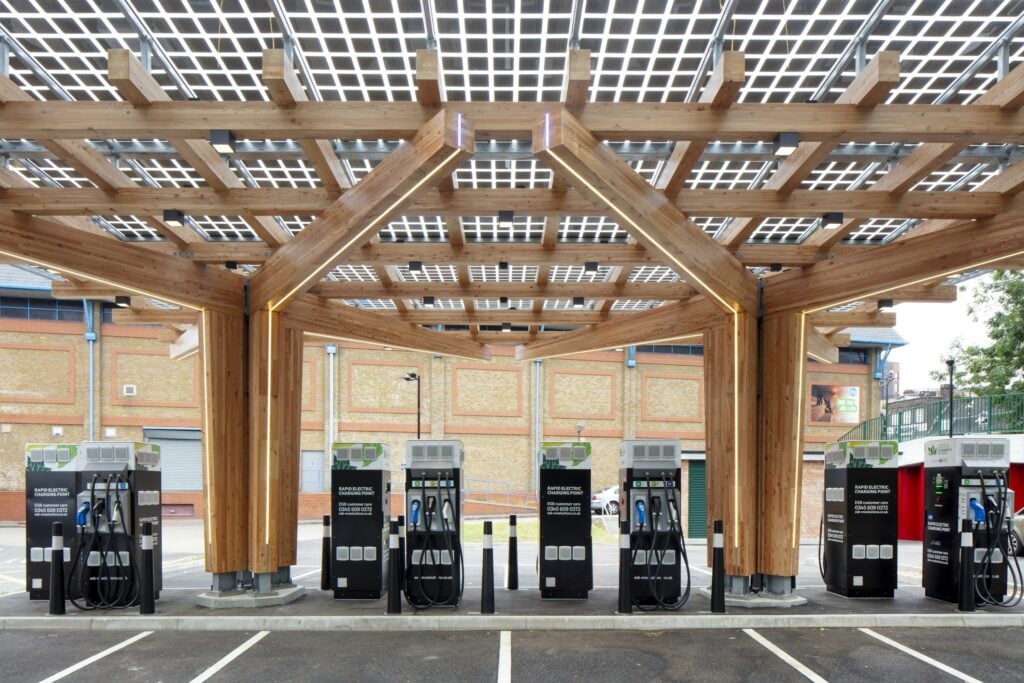Transport for London (TfL) has opened a rapid charging hub for electric vehicles (EVs) in Woolwich.
The Glass Yard hub offers eight charging points for EVs, capable of charging vehicles in 20-30 minutes, meaning it is more likely space will be available at the site.
It is the second of five rapid charging facilities being developed by the group across London, following a site at Stratford International. The next – at Baynard House in the City of London – is currently under construction, with more to follow in north and west London.
The Mayor of London, Sadiq Khan, said he was “delighted” the new site had opened.
“There are now over 7,000 charge points available to support electric vehicle use in the city and it’s great to see London leading the way in the green vehicle revolution,” he continued.
“Petrol and diesel vehicles are major contributors to air pollution in London so it is essential that we make it as easy as possible for people to swap their cars, vans and motorcycles to greener, electric versions. In October, I am expanding the Ultra Low Emission Zone up to the North and South Circular roads, which will bring huge benefits to many more Londoners by helping to improve our filthy air.”
London has around a third of the UK’s charging points, with more than 7,000 charging points within the M25. This increased by more than 2,000 over the last year, as well as TfL hitting its target of delivering 300 rapid charging points across the capital.
Of these public charging points some are dedicated specifically to the capital’s more than 4,300 zero emission black cabs. Taxi drivers have been able to access £10,000 to take their diesel vehicles off the road, along with a grant of £3,500 available from the Office of Low Emission Vehicles to go electric.
The Go Ultra Low Cities scheme has offered drivers a route to residential charging, with more than 3,000 such charging points delivered now in partnership with local authorities. The success of the Mayor of London and TfL’s EV infrastructure rollout was recognised at last year’s Electric Vehicle Innovation & Excellence Awards (EVIEs), hosted by Current±’s publisher Solar Media.
While the charging infrastructure is sufficient to meet current demand in the capital, this is expected to grow dramatically in the coming years. It is estimated that London will need up to 4,000 rapid charging points and 48,000 residential chargers by 2025 according to the Mayor’s Electric Vehicle Infrastructure Delivery Plan.
“It’s essential that we increase the supply of charging infrastructure for electric vehicles as we support the shift to these vehicles to clean up London’s air and decarbonise transport in the city,” said Alex Williams, TfL’s director of City Planning.
“We have seen an increase of more than 2,000 charging points in the capital over the last year and these new hubs are a key part of that expansion. Electric vehicle charging hubs that can be used in the same way as a traditional petrol station but without pumping toxic fumes are important in helping people to feel comfortable taking the plunge with an electric vehicle.”
Nominations for this year’s EVIEs awards are set to close tomorrow. To find out more about the categories and how to nominate the biggest and best players in the sector, click here.





